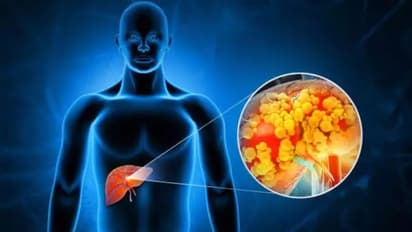Diagnosed with liver cancer? 6 Coping strategies to deal with THIS sickness

Synopsis
Liver cancer can be challenging in many ways, but with the right coping strategies and support systems (which we discuss further below), the experience is manageable.
Coping Strategies
· Education and Information—Gaining knowledge of liver cancer, including its types, stages, therapy details, and prognosis, will lessen anxiety. Knowing gives you the proper perspective to guide decisions regarding treatment methods, develop realistic expectations, and recognize side effects.
· Exercise: Whether it be a daily walk, or yoga at home — even mild exertion can enhance mood, diminish tiredness and aid in physical strength. Throughout treatment, definitely ask your doc what exercises are appropriate.
· Mindfulness and relaxation techniques: Activities like meditation, deep breathing or progressive muscle relaxation can reduce the stress and anxiety response. These strategies are useful in adversity, getting us to stay grounded in the moment and not obsess about the unknown ahead.
· Nutritious Diet: Consuming a balanced diet can help the body cope with treatments and recover. With the help of a cancer care nutritionist, you can have a well-balanced diet providing all nutrients without stressing your liver.
· Communicate: Discuss your symptoms, worries and concerns with your healthcare team. This will ensure that you receive the best treatment possible. You may use as an avenue to speak about your emotional difficulties that your team will assist you with.
· Short Emotional Expression: Try not to suppress feelings. Process your feelings by journaling, creating art, or speaking to a friend. More about Psychotherapy or Counselling can assist with this, offering professional support to make the emotional landscape of cancer and its consequences more straightforward,
Support Systems
· Family and friends – Your inner circle can provide emotional, physical and practical support. Allow them to run some errands, lend an ear if you need to vent, and accompany you to doctor appointments.
· Support Groups: Some people prefer to reach out to others experiencing similar situations. Joining cancer support groups — physical or virtual — can provide you with a listening ear, and being around people going through similar experiences can be comforting, as they can usually share their knowledge on simple ways of surviving.
· The Pros: Oncologists, nurses, social workers — all trained professionals who can guide you during your treatment. Getting Psychologists or counselors trained to help deal with chronic illnesses may assist you in coping skills.
· Financial and Legal Assistance: Many cancer treatments are costly, and the health care system can be convoluted. Organizations such as the American Cancer Society can provide resources for potential financial aid, legal assistance, and transportation.
Lean on your community and prioritize your self-care so you can walk through life with liver cancer.
- Dr. Harish E, Consultant Surgical Oncology, KMC Hospital, Mangalore
Explore the latest Lifestyle News covering fashion, wellness, travel, Food and Recipes, and more. Stay updated with trending Health News, fitness tips, and expert insights to inspire your daily living. Discover personalized lifestyle trends that keep you stylish and informed. Download the Asianet News Official App from the Android Play Store and iPhone App Store for everything that adds value to your everyday life.